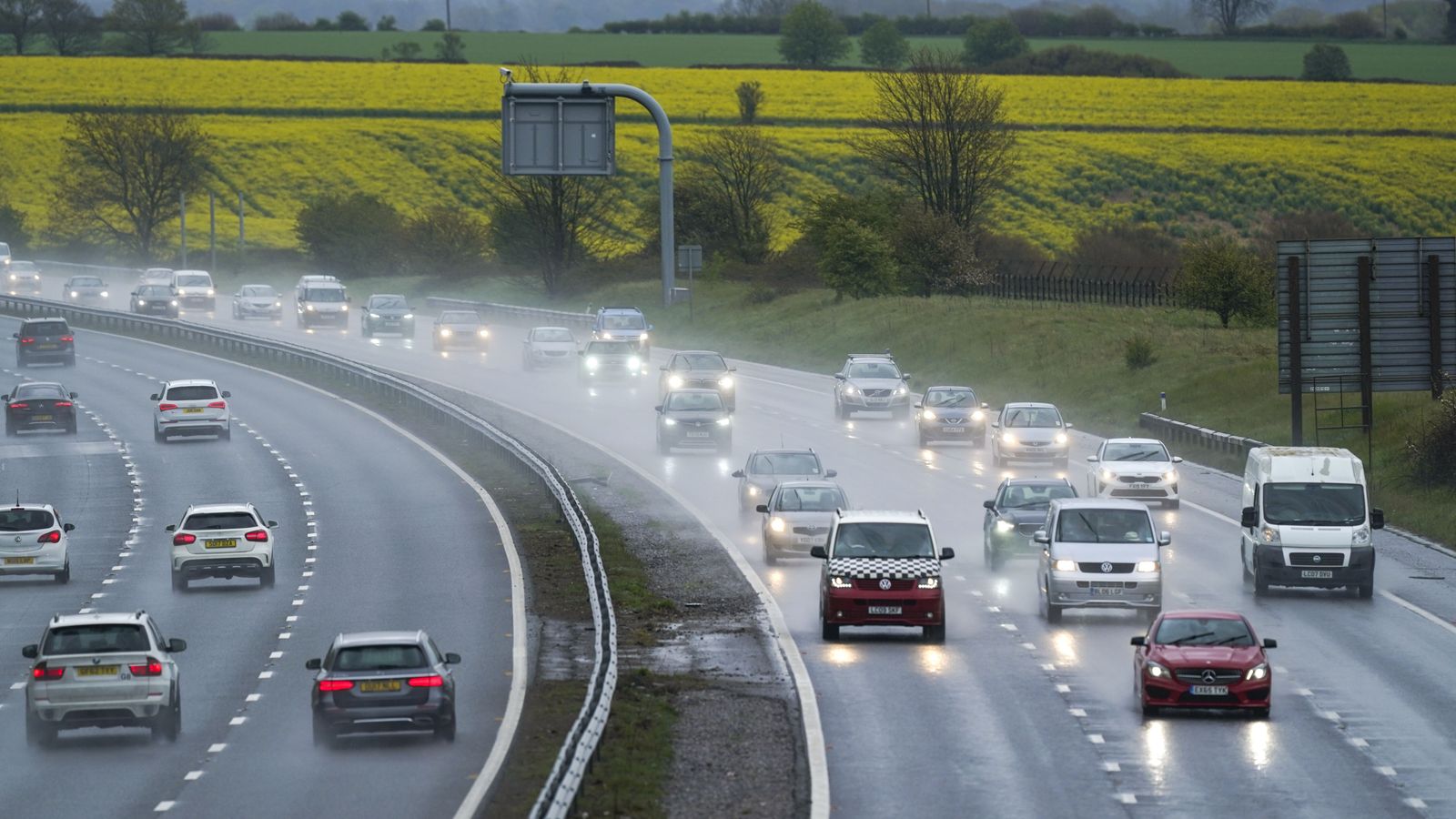Highways England is to be rebranded for the second time in six years, and will become known as National Highways.
The body, previously known as the Highways Authority, will still only be responsible for the motorways and major A-roads in England, however.
Major roads in Scotland, Wales and Northern Ireland all have their own operating outfit.
AA president Edmund King
Asked how much the rebranding will cost – and how long it will take – a spokesman said: “Work will be managed in-house wherever possible and, keeping the cost to the taxpayer at the forefront of our mind, will be kept to a minimum.
“Changes to branding will be minimal and carried out over time as part of routine maintenance and renewal.”
AA president Edmund King said the name change was “a bizarre move”.
He said: “It is not national in the sense that it doesn’t cover the nations of Wales, Scotland and Northern Ireland.
“Drivers really don’t care what it is called but they do care about having well-maintained, safe roads and motorways.
“Ironically many people still refer to it as the Highways Agency despite changing its name six years ago.
“When drivers are stuck in jams on pot-holed roads, they don’t care whether the fat controller is from the Highways Agency, Highways England or National Highways, they just want the roads sorted.”
Nick Harris, who has been in charge of Highways England temporarily since February, will head up the rebranded company.
Transport Secretary Grant Shapps said: “Nick will steer Highways England into an exciting new chapter, as it evolves into National Highways and delivers on our £27 billion plan to improve our roads and make journeys safer, smoother and greener.”
Highways England has been criticised in recent years for its smart motorways project, which involves using the hard shoulder as a live lane.
Follow the Daily podcast on Apple Podcasts, Google Podcasts, Spotify, Spreaker
The motorways have been linked with higher rates of fatal accidents – an independent report found that when all lanes were open to traffic there was a 216% increased chance of being involved in a live lane breakdown.
Highways England insists the roads are at least as safe as conventional motorways.






















